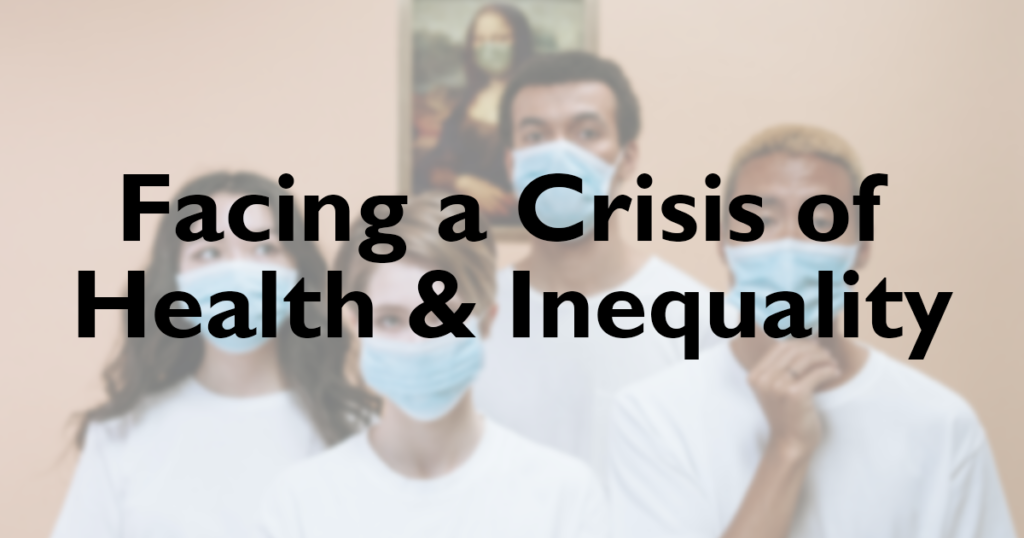Facing a Crisis of Health and Inequality
 In the past few weeks, it has become apparent that the present moment necessitates a war on inequality as much as a war on the coronavirus.
In the past few weeks, it has become apparent that the present moment necessitates a war on inequality as much as a war on the coronavirus.
Members of the working class bear disproportionate dangers from virus exposure – whether they are riding the subway to work, serving as nurses lacking recommended protective gear, or working in unsafe factory conditions. What we are currently witnessing is part of a long-standing dynamic of injustice: environmental classism. Back in 1845, Frederick Engels used the phrase “social murder” to describe how the factory and housing conditions of the working class led to injury and death, aptly describing a lethal power that can only be attributed to the structure of a society and not individual behavior.
To understand present inequalities, one has to understand a history of accumulated injustices. Consider, for example, the plight of Louisiana’s St. John the Baptist Parish, which suffers the highest death rate for Covid-19 for a county with the population of over 5,000 in the U.S. St. John the Baptist and other neighboring parishes have been making the environmental headlines for decades as the region known as “cancer alley.” Environmental scientist Wilma Subra notes that the leading corporate polluter in St. John the Baptist “has been releasing toxic chemicals into the air for 50 years.”
She adds, “All the community have some type of respiratory impact, some more than others. But they’re already very vulnerable.” As a result of accumulated environmental injustices, the coronavirus – with its particularly devastating attack on the lungs – has arrived to St. John the Baptist Parish with a staggering force.
As noted in a recent report from the United Church of Christ on 100 super polluters across the nation, “cancer alley” is home to eleven of these super polluters and four of the top ten. The community surrounding the leading polluter in St. John the Baptist is comprised of 80% people of color and 45% people with low income. The parish is ultimately a microcosm of inequality in the United States. Like a doctor gathering the medical history of a patient, inequality in our nation cannot be understood without understanding the widespread symptoms and chronic problems that preceded it.
In the Christian tradition, we talk about “the good news.” The often-unacknowledged implication is that “good news” follows a “bad news” situation. For the early followers of Jesus, that meant the inequality and violence of the Roman Empire. For our society today to finally arrive at the good news, we will first have to fully face the bad news that brought us to this moment.
The Rev. Dr. Brooks Berndt is Minister for Environmental Justice of the Education for Faithful Action Plus (EFA+) Team in Justice and Local Church Ministries for the United Church of Christ and the author of the recently released Cathedral on Fire: A Church Handbook for the Climate Crisis.
View this and other columns on the UCC’s Witness for Justice page.
Donate to support Witness for Justice.
Click here to download the bulletin insert.
Related News
It’s Time to Get into Good Trouble
On Tuesday, April 3, history was made by U.S. Senator Cory Booker who spoke on the Senate...
Read MoreReflections on a Christian Understanding of State and Government
The testimony of both the Hebrew and Christian scriptures as well as theological reflections...
Read More“What is Wrong with You People?”
I am writing this article from New York City as I engage with CSW, the United Nations...
Read More

